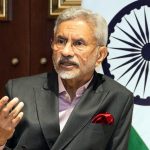BOOK REVIEW
SHAKEEL MAQBOOL YATOO | DR. GULZAR AHMED WANI
The popularity of the short story genre is equally significant alongside other literary forms. From Munshi Premchand to contemporary writers, all have experimented with this genre, bringing the intricacies of the times within its creative boundaries.
Dr Mohammad Younis is one such young contemporary short story writer with roots in Pulwama, Kashmir. Doctor by profession Mohammad Younis keeps his fingers on the pulse of society. His first love was poetry, but like many other poets, he also holds a deep appreciation for the art of prose, specifically short stories. His connection to poetry is evident in his prose as well.
Apart from his poetry, his interest in storytelling shines through. His first collection of short stories, “Khwabu Ki Kasak”, (the longing of dreams)” recently gained public attention. Within this collection, his twenty short stories showcase his creativity and ability to engage readers from various angles.
In these stories, Dr Younis’s focus often remains on individuals who have played their role in corrupting the moral fabric of the society. Those individuals who continue to tarnish society are under his scrutiny, and he also delves into the lives of those who coexist with them.
In essence, DrYounis’s gaze is deep into the fabric of society. His writings are a tapestry of his experiences, observations, and creative flair, offering a fresh perspective to all readers.
Here are some of the merits of Dr. Mohammad Younis’s storytelling:
- He doesn’t unnecessarily expand his stories; he tells them as much as they need to be told.
- His stories reflect his own environment, allowing him to express himself without hesitation.
- His stories take on a fictional tone whenhe weaves the responses that stem from subconscious feelings into a plausible story. The tone though fictional appears to the reader as very real.
In Dr. Mohammad Younis’s initial works, several short stories are imbued with the essence of storytelling. Among them are tales of friendships and divorces, where personal experiences, observations, and creative sensibilities are apparent.
Mohammad Younis has indeed made a courageous effort to reach the realm of storytelling, and he has been quite successful in many aspects. However, in some instances, certain shortcomings do appear which is not out of ordinary for someone publishing his first work.
Since this is Mohammad Younis’s first collection of short stories, it should be viewed with sympathy. The characters he presents in his stories engage in conversations that are in line with their environment, and these individuals are the same ones with whom he has closely interacted in real life. This closeness to the lives of the characters in his stories is what adds authenticity to his narratives.
Here is a passage from short story “Talaq (Divorce)” that embodies his empathy and truthfulness: “Zubeida faced such a catastrophe that her courage to respond was shattered. She was pregnant and lived in the hope that with time, there would be a change in Bashir, but this hope was merely an illusion.”
This passage reflects the depth of Mohammad Younis’s storytelling and his ability to depict the joys, sorrows, happiness, and sadness of people in his society, ultimately contributing to a profound exploration of his society’s nuances.
In his short stories, Dr. Muhammad younis has presented a stark reality that in today’s society, young men, under the influence of alcohol and narcotics, turn their pleasant lives into hell and, in the process, destroy their homes as well. He portrays how the tranquility of a home is disrupted and the extent of cruelty inflicted upon their wives, all depicted with a great artistic finesse.
Similarly, in the short story “Nayasabaq (A New Lesson)”, another successful attempt has been made. “My friend, have courage, don’t lose hope completely. You know despair is like disbelief, so let’s not indulge in such thoughts,” says one character to another.
In this way, it can be said that Mohammad younis has a profound concern for the pertinent issues of society. Much like Munshi Premchand portrayed the colors and atmosphere of village life, he is currently immersed in portraying the rough and tough life of the countryside. He understands the hardships of life, and through his stories, he vividly captures and conveys the pain of people. It’s when he brings out these issues into the spotlight that his success as a storyteller truly shines. He has a remarkable ability to expose and address the root problems through his narratives, tackling them with the power of his pen. This is the brilliance of Mohammad Younis’s art.
In his stories, the natural landscapes he presents capture the essence of Kashmir’s seasons. Alongside the snow-covered mountains, lakes, frozen nights, autumn, flowing rivers, pine forests, clouds, and the shade of Chinar trees, he beautifully weaves his tales. He has a deep connection with every aspect of his homeland, and his love for them is evident. His understanding of life’s hardships resonates throughout his stories, and his ability to portray pain, joy, happiness, and sorrow of the people in his society adds to the richness of his narratives.
To summarise, Mohammad Younis appears as a highly talent and creative writer, and a storyteller of profound depth. If he continues on this path with his pen, there is no denying his importance in the literary world of Urdu fiction.
(Shakeel Maqbool Yatoo is a Central Civil Services Officer working as Additional Commissioner State Taxes Kashmir and Dr. Gulzar Wani is a Lecturer of Urdu Literature)








